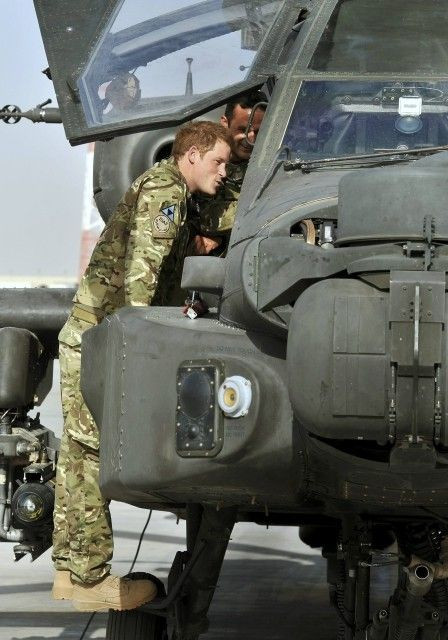Prince Harry Compares Killing Taliban Militants To Playing Xbox; Taliban Outraged Over Comments [VIDEO]

If Prince Harry had any fears about his deployment in Afghanistan after the Taliban targeted him in a deadly attack, he’s certainly hid them well.
In an interview with Britain’s Channel 4 News, broadcast for the first time on Monday just after media outlets announced that Harry’s deployment had ended, Harry spoke enthusiastically about his military service in remarks that have outraged Taliban officials, the New York Times reported.
Prince Harry, who was based in Camp Bastion in Helmand province and served as an Apache helicopter pilot, admitted on camera to killing Taliban insurgents. But the comment that angered Taliban members the most, was when the prince compared the fighting to playing a video game.
“Take a life to save a life,” he said in one clip of a video that has since been broadcast by several British media outlets. “That’s what we sort of revolve around, I suppose. If there’s people trying to do bad stuff to our guys, we’ll take them out of the game.”
In another clip, published by the Guardian, Prince Harry said he was glad to have taken on an aggressive role in the military, being “pushed forward to the front seat” as the machine-gunner.
Harry, or Captain Wales as he is referred to in the military, said manning the gun was “a joy for me because I’m one of those people that loves playing PlayStation and Xbox, so with my thumbs I like to think I’m probably quite useful.”
“If you ask the guys I thrash them at FIFA the whole time,” he added, referring to a series of video games created by EA Sports.
The widely publicized comments provoked the ire of a Taliban spokesman, who suggested that the royal was suffering from “mental problems.”
“This is a serious war, a historic war, resistance for us, for our people,” Taliban spokesman Zabiullah Mujahid, told Agence France-Presse, “and now this prince comes and compares this war with his games, PlayStation or whatever he calls it.”
“We don’t take his comments very seriously,” Mujahid said, “as we have all seen and heard that many foreign soldiers, occupiers who come to Afghanistan, develop some kind of mental problems on their way out.”
© Copyright IBTimes 2024. All rights reserved.





















